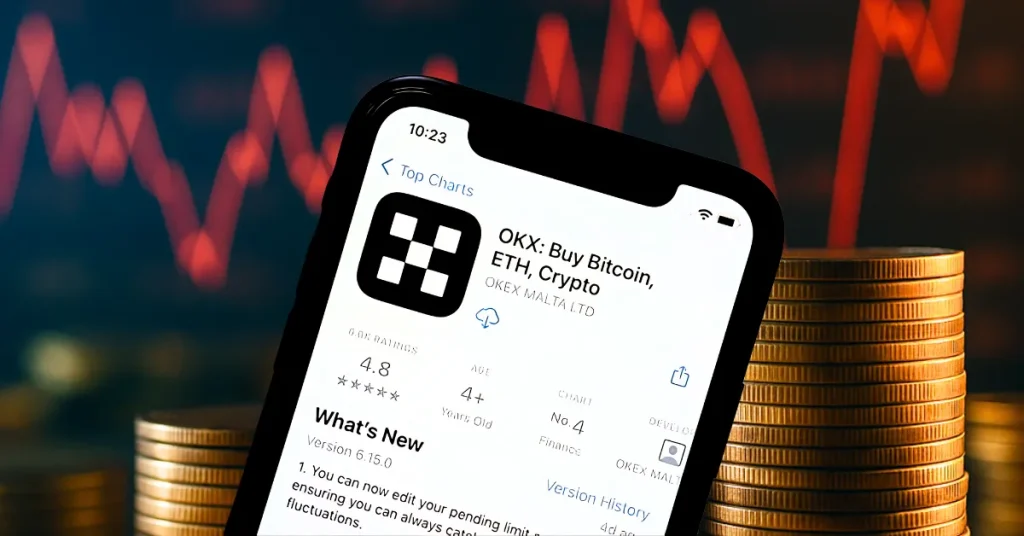- What does KYC Means?
- What are KYC and AML?
- What are the Benefits or Limitations of KYC?
Have you ever wondered why opening an account with a bank or a crypto exchange is such an extensive process? Why every time you open an account with these institutes, you are required to provide various identity proofs to verify your identity?
There is a genuine reason behind it.
No legit business wants to deal with bad players or their money. Further, authorities would run after these institutes if they directly or indirectly help these criminals.
Therefore, these institutes must verify the identity of their customers. And they also need to monitor future transactions to avoid the risks of unknowingly helping bad players in the market.
In simple words, a business needs to ensure that they are not dealing with illegal activities or unlawful persons. Thus, customer identification is part of Business Risk Management for these Banks or Crypto Exchanges.
KYC a.k.a. Know Your Customer is the process through which a bank or a crypto exchange verifies the identity of its customer. The primary objective of customer identity verification is to avoid Money Laundering. So, let’s understand more about it.
What is Money Laundering?
Money laundering is the process of cleaning dirty money. Dirty money can be understood as money earned from illegal or criminal activities.
This money is camouflaged as legal money and infused into the financial system through legit businesses. This process of making dirty money look clean is known as money laundering.
Money laundering is a serious crime, and most countries have an Anti-Money Laundering (AML) law to restrict these activities. In 1989, G7 Countries established an international organization, Financial Action Task Force (FATF), to fight money laundering on a global level. Later it expanded its scope to Terrorism Financing as well.
FATF provides guidelines and best practices for businesses to prevent money laundering. Therefore, KYC and AML go hand in hand to avoid money laundering and terror financing.
What is KYC (Know Your Customer)?
KYC stands for Know Your Customer. This is a process through which banks and other financial institutions verify the identity of their customers.
Generally, identity verification starts even before a person becomes a customer. First, a user’s identity is verified, and then he is allowed to transact with the platform.
Now, let’s find out why KYC is required in the first place.
Why is KYC needed?
The primary objectives of a KYC process are to prevent:
- Money laundering,
- Fraud,
- Misuse of financial accounts,
- Any other illicit activities, or
- Terror Financing
So, let’s dive into the procedure followed for KYC.
What is the procedure followed for KYC?
The KYC procedure is classified as follows:
1. Customer Identification Procedure
Step 1 of customer acquisition is to establish the customer’s identity. This process is generally called Identity Verification Process. The platform asks prospective customers to submit some personal documents related to their identity verification.
Generally, the following information is collected:
a) Name
b) Date of Birth
c) Address of Residence
d) Identity proof (more on this in the Documents section)
e) Address proof (more on this in the Documents section)
A business should accept only those customers whose identity has been established.
2. Customer Due Diligence
This is where customer information is analyzed and complete due diligence is performed. Further, a risk profile is created for the customer to identify whether the business has any risk due to accepting this customer or not.
3. Monitoring of Transactions
KYC is not a one-time process. It is an ongoing practice. Once a customer is accepted and onboarded, the due diligence practices are still applicable to them.
For this, the bank or the exchange needs to monitor the customer’s transactions and ensure that there are no unusual or suspicious activities.
A few parameters for this monitoring process can be:
- Transactions above a specified threshold,
- Frequency of transactions,
- Suspicious activities
Now, let’s figure out what all documents a business may ask you for during the KYC process.
What Documents are required for KYC?
Currently, there are no legal standards for the KYC process. Therefore, every bank or crypto exchange may have its own standards and procedures. However, generally following documents may be collected:
1. Proof of Identity
The following documents can be provided as a proof of identity:
- Driver’s License / Government-issued photo ID
- Passport
- Social Security Number
- Tax Identification Number (TIN)
- Voter ID Card
2. Proof of Address
The following documents can be provided as a proof of address:
- Utility bills
- Bank account statements
- Lease agreement
3. Photograph
Based on the platform’s policy, a user may be asked to provide a live picture or a previous photograph.
Now, let’s understand why KYC is necessary for Crypto Exchanges.
Why is KYC Important for Crypto Exchanges?
KYC practices apply to all financial institutions and are not limited to Banks only. Therefore, a crypto exchange must also have a KYC policy for its customers.
Further, the use of digital currencies for illicit activities has gained much attention. Therefore, KYC procedures are necessary to keep these bad players away from the crypto industry.
Lastly, these practices also enable crypto exchanges to understand customer needs based on their region, age, demographics, etc.
What are the Benefits and Limitations of KYC?
The benefits and limitations of KYC by Crypto Exchanges are as follows:
1. Benefits of KYC
The benefits of KYC are as follows:
a) It prevents money laundering, fraud, or any other illicit activities
As already discussed, KYC’s prime objective is to prevent money laundering and financial fraud.
b) Helps to maintain records
KYC helps maintain user records which can further be used for tax and other financial reporting.
c) Helps to serve Client needs
Because of identity verification, businesses have more information about their customers. This helps these financial institutions to serve customer needs better.
However, there are a few possible limitations as well.
2. Limitations of KYC
The limitations of KYC are as follows:
a) Time-consuming process
Generally, the KYC process is a time-consuming activity. In the case of a few crypto exchanges, we have experienced a delay of weeks or even months to process user KYC documents.
b) Data security issues
This is the most significant risk with KYC. Crypto exchanges collect your personal information. Therefore, it is their responsibility to keep this data safe and secure. In the past, there have been instances where hackers have stolen this data. This causes a severe risk of identity theft for users.
Conclusion – What is KYC and Why is it Important for Crypto Exchanges
Therefore, we understand that KYC is a practice for the greater good of humanity. A nascent technology like blockchain should not be allowed to be exploited by unlawful or criminal elements of society. Further, KYC procedures help businesses to manage their risks and keep these harmful elements far away from them.
However, these KYC regulations should also not hamper the personal privacy rights of a user. Therefore, a balance should always be maintained between the two extremes. If you want to explore KYC on Binance, you can refer to our Complete Guide on Binance KYC.
I hope this post will help you understand KYC and its importance for Crypto Exchanges. Do share your comments and feedback with us.
Frequently Asked Questions (FAQs)
What is KYC?
KYC stands for Know Your Customer. This is a process through which banks and other financial institutions verify the identity of their customers.
What documents are needed for KYC?
The following documents can be provided for KYC:
Proof of Identity
1. Driver’s License / Government-issued photo ID
2. Passport
3. Social Security Number
4. Tax Identification Number (TIN)
5. Voter ID Card
Proof of Address
1. Utility bills
2. Bank account statements
3. Lease agreement
What are the benefits of KYC?
1. It prevents money laundering, fraud, or any other illicit activities
2. Helps to maintain records
3. Enables to serve Client needs
What are the limitations of KYC?
1. Time-consuming process
2. Data security issues
News appeared first on: Coinsutra.com














